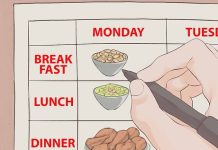Embarking on the journey of writing a book report can be both exciting and challenging. Whether you’re a student tasked with a literary analysis or an avid reader wanting to share your insights, a well-structured outline can serve as your roadmap to success. In this blog, we’ll explore the key components of a book report and provide you with a detailed outline to help you get started on this literary adventure.
Table of Contents
ToggleI. Introduction
A. Book Information
- Title of the Book
- Author’s Name
- Publication Date
- Genre
B. Brief Overview
- Provide a concise summary of the book, setting the stage for the reader’s understanding.
C. Thesis Statement
- Clearly state your main argument or thesis regarding the book. This could include your overall impression, the author’s purpose, or the book’s central themes.
II. Summary of the Plot
A. Main Characters
- Introduce and briefly describe the main characters. Highlight key traits, motivations, and relationships.
B. Setting
- Discuss the time and place where the story unfolds. Explore how the setting contributes to the overall atmosphere and mood.
C. Plot Overview
- Provide a chronological summary of the major events in the book. Be sure to include the introduction, rising action, climax, falling action, and resolution.
III. Analysis and Interpretation
A. Major Themes
- Identify and discuss the central themes explored in the book. Consider how these themes contribute to the overall meaning of the work.
B. Character Development
- Analyze the growth and changes in the main characters throughout the story. Explore their motivations, conflicts, and relationships.
C. Writing Style
- Assess the author’s writing style, including their use of language, tone, and literary devices. Discuss how these elements contribute to the narrative.
D. Symbolism and Imagery
- Identify and interpret any symbols or recurring imagery present in the book. Explore their significance and contribution to the story’s depth.
IV. Evaluation and Critique
A. Strengths
- Highlight aspects of the book that you found particularly well-executed. This could include strong character development, engaging plot twists, or thought-provoking themes.
B. Weaknesses
- Address any shortcomings or areas where the book fell short of expectations. This could include underdeveloped characters, pacing issues, or unresolved plotlines.
C. Personal Response
- Share your personal reaction to the book. Discuss how it impacted you emotionally and intellectually.
V. Conclusion
A. Restate Thesis
- Revisit your thesis statement and summarize your main points.
B. Final Thoughts
- Conclude with your overall thoughts on the book. Consider recommending it to a specific audience or comparing it to other works in the same genre.
VI. Additional Elements (Optional)
A. Author Background
- Include information about the author’s background and how it may have influenced the book.
B. Genre Considerations
- Discuss how the book fits within its genre and whether it adheres to or subverts genre conventions.
C. Connections to Real World
- Explore any connections between the book and real-world issues or events.
Embark on Your Literary Exploration
Armed with this comprehensive outline, you’re well-equipped to dive into the world of book reports. Remember to balance your objective analysis with your subjective responses, providing readers with a well-rounded understanding of the book’s merits and significance.
Happy writing, and may your literary journey be as enriching as the stories you explore!








